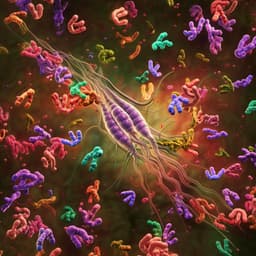
Medicine and Health
Exploring the profound link Breastfeeding's impact on alleviating the burden of breast cancer -A review
P. I. Obeagu and U. Getrude
This insightful review conducted by PhDEmmanuel Ifeanyi Obeagu and Uzoma Getrude delves into the protective effects of breastfeeding against breast cancer. It highlights the dose-dependent relationship supported by epidemiological evidence and discusses the biological mechanisms at play, such as hormonal changes and tumor subtype impacts. Discover how supporting breastfeeding can significantly influence public health outcomes!
Related Publications
Explore these studies to deepen your understanding of the subject.







